Conformity Assessment of Products
Conformity assessment is the process that manufacturers must follow to ensure their products comply with the relevant European Directives and Regulations. This process often requires the involvement of a Notified Body, which is an organization designated by an EU country to assess the conformity of certain products before they are placed on the market.
Get in touch with us to learn more about how our product certification can benefit your business.

Achieve Excellence with Product Certification
Steps in the Conformity Assessment Process
1. Identify Applicable Directives and Standards
- Determine Relevant Directives: Identify the EU directives and regulations that apply to your product (e.g., Medical Devices Directive, Machinery Directive).
- Understand Requirements: Each directive specifies essential requirements related to safety, health, and environmental protection.
2. Choose the Appropriate Conformity Assessment Procedure
- Modules and Procedures: Depending on the directive and the type of product, different conformity assessment modules (A-H) are available. These range from internal production control to full quality assurance systems.
- bqs Notified Body Involvement: For certain products and modules, a Notified Body must be involved to conduct assessments, tests, or inspections.
3. Engage bqs as your new Notified body
- Contact our team: Inform about current capacities and conditions
- Get quotation: Provide information by our RFQ forms to get calculations and quote
- Assessment Fee list: (Link will be active upon IVDR notification)
- Lodge Application: Submit complete information and files as per applicable scheme related to your product and the conformity assessment procedure you have chosen.
- Languages of documentation: bqs is accepting documentation in Slovak, English or Czech. Other languages are refused or can be machine translated if applicable
4. Conduct Assessment
- Documentation Review: bqs reviews the technical documentation, which includes design specifications, risk assessments, and test results.
- Testing and Inspection: bqs may perform or oversee testing and inspections to verify compliance with the applicable standards and requirements.
- Quality System Audit: If applicable, bqs audits the manufacturer’s quality system to ensure it meets the required standards.
5. Obtain Certification
- Certification Issuance: Upon successful completion of the assessment, we issue a certificate of conformity as per the applicable procedure
- CE Marking: With the certificate, the manufacturer can affix the CE mark to the product, signifying compliance with EU directives. bqs is Notified Body 2854 and CE marking shall follow our number
6. Maintain Compliance
- Ongoing Surveillance: Some directives require ongoing surveillance by the Notified Body to ensure continuous compliance as well other specific activities like annual reviews, annual updates and more
- Technical Documentation: Maintain and update the technical documentation for at least 10 years (as per the scheme) after the last product has been placed on the market
- Declaration of Conformity: The manufacturer must draw up and sign an EU Declaration of Conformity, declaring that the product complies with all relevant directives.
Role of bqs as your Notified body
A Notified Body plays a crucial role in the conformity assessment process, particularly for high-risk products. They are responsible for:
- Impartial Assessment: Conducting independent evaluations to ensure product compliance.
- Expert Guidance: Providing expert advice on applicable standards and regulations.
- Certification: Issuing certificates of conformity, allowing manufacturers to legally affix the CE mark.
Benefits of Using bqs as your Notified Body
- Credibility and Trust: Certification by a recognized Notified Body enhances the credibility and market acceptance of your product.
- Market Access: Ensures compliance with EU regulations, facilitating smooth access to the European market.
- Risk Mitigation: Helps identify and mitigate potential compliance risks early in the product development process.
CE marking
Since year 1985 CE marking on products is reference a manufacturer or an importer claim the product is in compliance with applicable European directive. As a mandatory requirement for certain products intended to be placed on European market, CE marking is recognizable worldwide.
IVDR 2017/746
The In Vitro Diagnostic Regulation (IVDR) is an EU legislation that oversees the safety and efficacy of in vitro diagnostic medical devices. Its primary goal is to bolster patient safety by ensuring the precision and dependability of diagnostic tests used in healthcare. The IVDR supersedes the prior In Vitro Diagnostic Directive (IVDD) and imposes more rigorous obligations on manufacturers, including heightened scrutiny of clinical data, enhanced post-market monitoring, and increased transparency. Adherence to the IVDR is obligatory for manufacturers marketing in vitro diagnostic devices within the European market.
MDR 2017/745
The Medical Device Regulation (MDR) 2017/745 is a set of European Union regulations governing the safety and performance of medical devices. It aims to enhance patient safety and ensure the quality and reliability of medical devices sold in the EU. The MDR replaces the previous Medical Device Directive (MDD) and introduces stricter requirements for manufacturers, including increased scrutiny of clinical evidence, improved post-market surveillance, and enhanced transparency. Compliance with the MDR is mandatory for medical device manufacturers selling products in the European market.
98/79/EC
In Vitro diagnostic medical devices are regulated by European parliament and council directive 98/79/EC and similary as for medical devices, the directive defines conformity assessment routes options. List A, list B and devices for self-testing are intended to be assessed by notified body.
93/42/EEC
Medical devices determined by classification rules of European parliament and council directive 93/42/EEC are intended to undergo CE marking proces defined by one of the described conformity assessment routes.
Organic production
Organic product and organic production? Trust is powerfull but build it and prove it on the piliers of our independent assessment and inspections. By our supervision consumers over the world will be always sure about what they get. Prove compliance with European council regulation 834/2007 and assure your customers by our certification and inspection activities.
Get an offer for bqs. certification service
Contact us and inform about conditions and cost calculation for entire certification cycle
